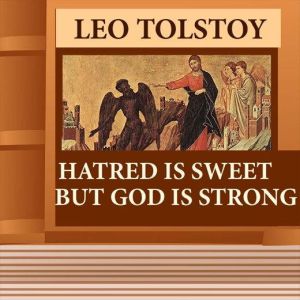

Hatred Is Sweet, But God Is Strong
Author: Leo Tolstoy
Narrator: Anastasia Bertollo
Unabridged: 7 min
Format: Digital Audiobook Download
Publisher: SmartTouch Media
Published: 01/22/2015
Categories: Fiction, Short Stories


Author: Leo Tolstoy
Narrator: Anastasia Bertollo
Unabridged: 7 min
Format: Digital Audiobook Download
Publisher: SmartTouch Media
Published: 01/22/2015
Categories: Fiction, Short Stories
Leo Tolstoy was born in 1828 at Yasnaya Polyana in central Russia and educated privately. He studied Oriental languages and law at the University of Kazan, then led a life of dissipation until 1851, when he went to the Caucasus and joined an artillery regiment. He took part in the Crimean War, and on the basis of this experience wrote The Sevastopol Stories, which confirmed his tenuous reputation as a writer.
After a period in St. Petersburg and abroad, where he studied educational methods for use in his school for peasant children at Yasnaya Polyana, Tolstoy married Sofya Behrs in 1862. The next fifteen years was a period of great happiness: the couple had thirteen children, and Tolstoy managed his estates, continued his educational projects, and wrote War and Peace and Anna Karenina.
A Confession marked a spiritual crisis in Tolstoy's life; he became an extreme moralist, and in a series of pamphlets written after 1880, he expressed his rejection of state and church, indictment of the weaknesses of the flesh, and denunciation of private property. He published his last novel, Resurrection, in 1900.
Tolstoy's teaching earned him many followers at home and abroad, but also much opposition, and in 1901 he was excommunicated by the Russian Orthodox Church. He died in 1910.